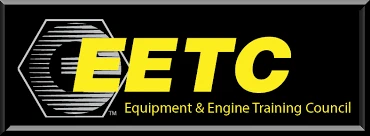
Archive for March 2024Your Vehicle's Hissy Fit (AC System)Posted March 31, 2024 7:21 AMWhen you hear hissing sounds coming from your vehicle, you might start thinking the worst. One type of hissing coming from around your air conditioner may be a normal sound, or it could be a sign of serious trouble. First - the normal sound. When you turn off your vehicle, the refrigerant goes from its high-pressure side to the low-pressure side. Some of those noises are normal. But when it hisses all the time, that's another story. One cause could be that the refrigerant is leaking. Air conditioners are fairly complex systems that involve various pumps, hoses, valves and motors. When your air conditioner is cooling, the refrigerant changes from a gas to a liquid and back. That refrigerant is under pressure, and there are many places it can leak from. A hissing sound can also be a failed valve in your air conditioner's compressor. It is what controls the refrigerant's pressurization. It's important to have this fixed fairly quickly after it develops a problem because when it isn't, that can lead to more extensive—and expensive—repairs. If you hear screeching coming from your air conditioner at the same time you hear hissing, your compressor may be on its last legs. It could also be a defective clutch. Any time you hear a noise you haven't routinely heard before, bring your vehicle to us so a technician can check the various components and properly repair the problems. Air conditioning systems are complex and are best handled by a professional with the right tools and equipment. When your AC has a hissy fit, let us cool it off and you at the same time. Steve & Stacy's Servicenter Differential ServicePosted March 24, 2024 12:58 PMWhen you're driving and turn a corner, you probably aren't aware of all that's going on with your wheels. The outside wheels have a longer distance to travel than the inside wheels, so there are gears that allow the wheels to go at different speeds when you turn. That set of gears is called a differential. In front-wheel drive vehicles, it's by the transmission and called a transaxle. Rear-wheel drive vehicles have the differential, naturally, on the rear axle. Many all-wheel and four-wheel drives add a center differential since power has to go to the front and rear wheels. (Some newer vehicles power wheels with electric motors, but that's a whole different story.) Time and distance traveled eventually can take their toll on the differential, and you may notice some noises you hadn't heard when your vehicle was newer. Sometimes you'll hear a whir that might change in pitch when you turn. You may hear clicking sounds when you're moving. Others describe rumbling sounds coming from underneath during a turn. Another symptom of possible differential problems may be vibrations or shakes the faster you go. All of these could be signs that you have problems with a differential. One common cause of differential problems is the gears aren't getting enough lubrication. These can all have serious effects on your driving. You may find it hard to turn, or your wheels may lock up. That could put you or drivers around you in a dangerous position. It's better to take care of differential problems before they get too serious. Bring in your vehicle so we can have a technician check yours out. They can see if there are any differential fluid leaks or failing gaskets. In some cases, we may recommend your differential fluid be replaced. And if there are any mechanical issues, some components may need to be replaced as well. When your differential is maintained, you'll be doing your vehicle a good turn. Steve & Stacy's Servicenter Full of Hot Air (Air Conditioning)Posted March 17, 2024 10:38 AMIn warm weather, you want to be in a cool vehicle. When we're talking cool, we don't mean stylish or trendy, but cool as in not sweltering inside. And if your vehicle's air conditioner stops working correctly, it seems to always break at the worst time—during a heat wave. Automotive air conditioning problems fail for a number of reasons:
When you bring your vehicle into our service center, we'll run a series of diagnostic tests to figure out what isn't working correctly. The air conditioning system has a lot of parts. There are electrical and mechanical components plus a series of hoses and tubes that all can wear out over time. Any one of these can fail. A lot of drivers think they have a "Freon leak" and believe that if they get their AC system recharged with the refrigerant, everything will be fine. But AC systems are so complex, it usually takes a trained technician to accurately figure out where the problems are. Sometimes the solution is simple. If your blower motor wears out or there's a fuse that has blown, the technician can replace the bad parts and you'll quickly be back to enjoying your rolling refrigerator. But when compressors or condensers go bad, those are much more involved and expensive to fix. For instance, electrical problems can sometimes lead to acid to build up and corrode other parts of your AC system. Sometimes that causes so much damage, your whole air conditioning system has to be replaced. That's why it's always a good idea to have your AC regularly maintained. Our technicians can find a problem early and prevent more expensive repairs down the road. That's really the cool way to go. Steve & Stacy's Servicenter It's Brake Time (Brake Calipers)Posted March 3, 2024 10:12 AMRace car drivers have demonstrated the advantages of disc brakes, so most modern vehicles use them. Sometimes just the front wheels have disc brakes, but many vehicles now have them all the way around. A major component of the disc brake is called a caliper. It works by squeezing brake pads against the disc or rotor, kind of like a bicycle hand brake. The brake pads themselves are what contact the rotor, causing friction to build and the wheel to slow down, but it's the calipers that apply the pressure to the pads. Caliper design has evolved over the years, and there are two common types. One is called a floating caliper. It has one or two pistons on one side of the disc. When you push down the brake pedal, the piston or pistons in your caliper put pressure on that one side. A mechanism connected on the other side of the disc applies pressure as well, squeezing your disc so the vehicle stops. Floating calipers are less expensive since they have fewer parts. The other type is called a fixed caliper. They use pistons on both sides of the disc, sometimes several. They are often used in more high-performance or heavy-duty vehicles. Calipers can have rubber seals to keep out dirt, debris and moisture, but when that rubber wears out, sometimes the calipers can get contaminated. They can stick or start leaking; they can even rust. Then your caliper can get stuck applying that "squeeze" when you are not pressing on the brake pedal. Or they can get stuck in the other position, not applying stopping power when you press the pedal. When this happens, it's not unusual to feel your vehicle pull to one side when you brake. You might notice a burning smell from the constant friction if the caliper is stuck on, plus you may feel the heat from the wheel after you park and get out of your vehicle. Sometimes you'll hear a high-pitched sound or clunk if your calipers are binding up. That's your cue to have them checked out at your vehicle service center. If your calipers aren't working correctly, it can be a safety hazard. Sticking calipers can affect your ability to steer and stop; this is the kind of "brake time" you need so you can get them back on track and working properly. Steve & Stacy's Servicenter | ||
SearchArchiveApril 2016 (16)May 2016 (5) June 2016 (4) July 2016 (5) August 2016 (4) September 2016 (4) October 2016 (5) November 2016 (4) December 2016 (4) January 2017 (5) February 2017 (4) March 2017 (4) April 2017 (3) May 2017 (4) June 2017 (5) July 2017 (5) August 2017 (3) September 2017 (3) October 2017 (5) November 2017 (4) December 2017 (3) January 2018 (5) February 2018 (4) March 2018 (4) April 2018 (5) May 2018 (4) June 2018 (4) July 2018 (5) August 2018 (4) September 2018 (5) October 2018 (4) November 2018 (4) December 2018 (5) January 2019 (5) February 2019 (4) March 2019 (4) April 2019 (4) May 2019 (4) June 2019 (5) July 2019 (4) August 2019 (4) September 2019 (5) October 2019 (4) November 2019 (4) December 2019 (5) January 2020 (5) February 2020 (4) March 2020 (5) April 2020 (4) May 2020 (5) June 2020 (4) July 2020 (4) August 2020 (5) September 2020 (3) October 2020 (4) November 2020 (5) December 2020 (4) January 2021 (6) February 2021 (4) March 2021 (4) April 2021 (4) May 2021 (5) June 2021 (4) July 2021 (4) August 2021 (5) September 2021 (4) October 2021 (5) November 2021 (3) December 2021 (4) January 2022 (6) February 2022 (4) March 2022 (4) April 2022 (4) May 2022 (5) June 2022 (4) July 2022 (5) August 2022 (4) September 2022 (4) October 2022 (5) November 2022 (4) December 2022 (4) January 2023 (5) February 2023 (4) March 2023 (4) April 2023 (5) May 2023 (4) June 2023 (4) July 2023 (5) August 2023 (4) September 2023 (4) October 2023 (5) November 2023 (4) December 2023 (5) January 2024 (5) February 2024 (4) March 2024 (5) April 2024 (4) May 2024 (4) June 2024 (5) July 2024 (4) August 2024 (4) September 2024 (5) October 2024 (4) November 2024 (4) December 2024 (5) January 2025 (4) February 2025 (4) March 2025 (5) April 2025 (4) May 2025 (4) June 2025 (5) July 2025 (1) | CategoriesMaintenance (8)Service Intervals (2)Service Standards (2)Steering (6)Keys to a long lasting vehicle (2)Air Conditioning (7)Fuel Economy (4)Fuel System (5)Battery (9)Alignment (7)What Customers Should Know (67)Transmission (3)Brakes (14)Dashboard (1)Headlamps (4)Auto Safety (4)Safety (2)Fluids (6)Alternator (5)Oil Change (8)Fuel Saving Tip: Slow Down (2)Tires and Wheels (4)Cooling System (7)Drive Train (4)Winter Prep (2)Inspection (2)Windshield Wipers (2)Check Engine Light (3)Tires (10)Timing Belt (2)Automotive News (1)Exhaust (9)Winter Tires (1)Older Vehicles (1)Water Pump (2)Wheel Bearings (1)Suspension (2)Transfer Case Service (1)Spark Plugs (2)TPMS (3)Shocks & Struts (1)Brake Service (4)Tire Rotation and Balancing (2)Differential Service (1)Serpentine Belt (1)Shocks and Struts (2)Fuel Filter (1)Engine Air Filter (1)Trip Inspection (1) | |
What our clients are saying about us
We have established longterm and stable partnerships with various clients thanks to our excellence in solving their automotive needs!
Awesome staff! They are so kind and helpful and went out of their way to help me out when I was in a pinch nearby.

I am a repeat customer - went to get my oil changed and they reminded me that I was not yet time! I very much appreciate the honesty and looking out for me!





















